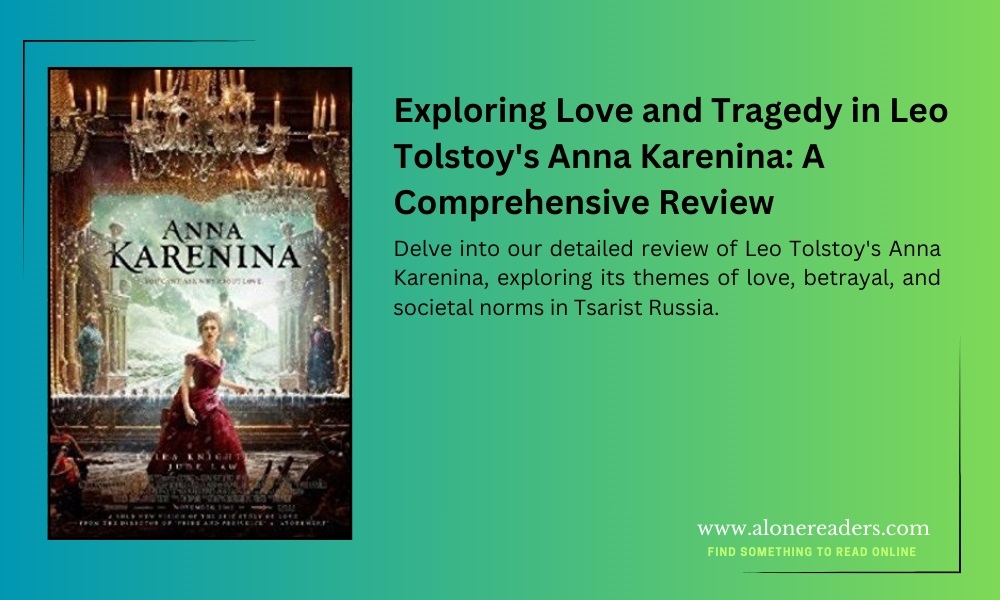
Leo Tolstoy's "Anna Karenina," first published in serial installments from 1873 to 1877, is often lauded as one of the greatest novels ever written. This masterpiece of Russian literature delves deeply into the complexities of love and the intricate dynamics of society in Tsarist Russia. The novel opens with one of the most famous lines in literature: "All happy families are alike; each unhappy family is unhappy in its own way." This sets the tone for a book that explores the themes of fidelity, social mobility, and the pursuit of happiness in excruciating detail.
"Anna Karenina" revolves around the life of Anna, a beautiful and aristocratic woman, who is initially seen in a seemingly stable marriage with her husband, Alexei Alexandrovich Karenin, a government bureaucrat. However, the facade of contentment crumbles quickly when Anna meets the charismatic Count Alexei Vronsky. Their ensuing affair spirals into a consuming passion that defies the rigid social norms of the time and leads Anna towards a tragic destiny.
Tolstoy crafts his characters with profound humanity and psychological depth. Anna, trapped by the conventions of society, struggles with her desires and duties, which makes her one of literature’s most memorable and tragic figures. Her life contrasts sharply with that of Levin, another key character, who searches for meaning in the countryside and eventually finds solace in family life and farming. Through these parallel lives, Tolstoy discusses contrasting approaches to happiness and fulfillment, making a poignant statement on the human condition.
The narrative style of "Anna Karenina" is immersive, with Tolstoy employing a mix of third-person narration and free indirect speech—a technique that allows the reader to hear the characters' thoughts directly. This style builds a deep emotional connection between the reader and the characters, making their joys palpable and their sorrows painfully relatable.
Moreover, Tolstoy’s rich descriptions of 19th-century Russian society, from the opulent salons of the aristocracy to the humble existence of the peasantry, are without parallel. His attention to detail not only furnishes a vivid backdrop for the characters’ dramas but also serves as a critical exploration of Tsarist Russia's social stratification. The novel critiques the inequities and moral dilemmas of such a rigidly structured society, questioning the very fabric of its moral and ethical norms.
One of the most compelling aspects of "Anna Karenina" is its exploration of moral struggles and personal redemption. Characters in the novel grapple with complex moral and spiritual questions. Levin’s philosophical quest for meaning is particularly emblematic of Tolstoy’s own spiritual and philosophical journeys. Through Levin, Tolstoy expresses his own doubts, hopes, and philosophical reflections, adding a layer of depth that invites readers to ponder their own beliefs and values.
Despite its initial publication in the 19th century, the themes of "Anna Karenina" resonate with contemporary readers. Issues of love, infidelity, the pursuit of happiness, and the struggle for personal integrity in the face of societal pressures are as relevant today as they were in Tolstoy’s time. The novel’s tragic ending is a profound commentary on the costs of defying societal norms, and it invites reflection on what it means to live authentically.
In conclusion, "Anna Karenina" is not just a book about an adulterous love affair in Imperial Russia, but a timeless exploration of human emotions and society. Its enduring appeal lies in its deep humanity and the universality of its themes. Tolstoy’s ability to weave complex characters, intricate plots, and philosophical depth makes the novel a monumental work in the world of literature. For anyone seeking to understand the heights and depths of human emotion and the complexities of living within societal constraints, "Anna Karenina" is an essential read.